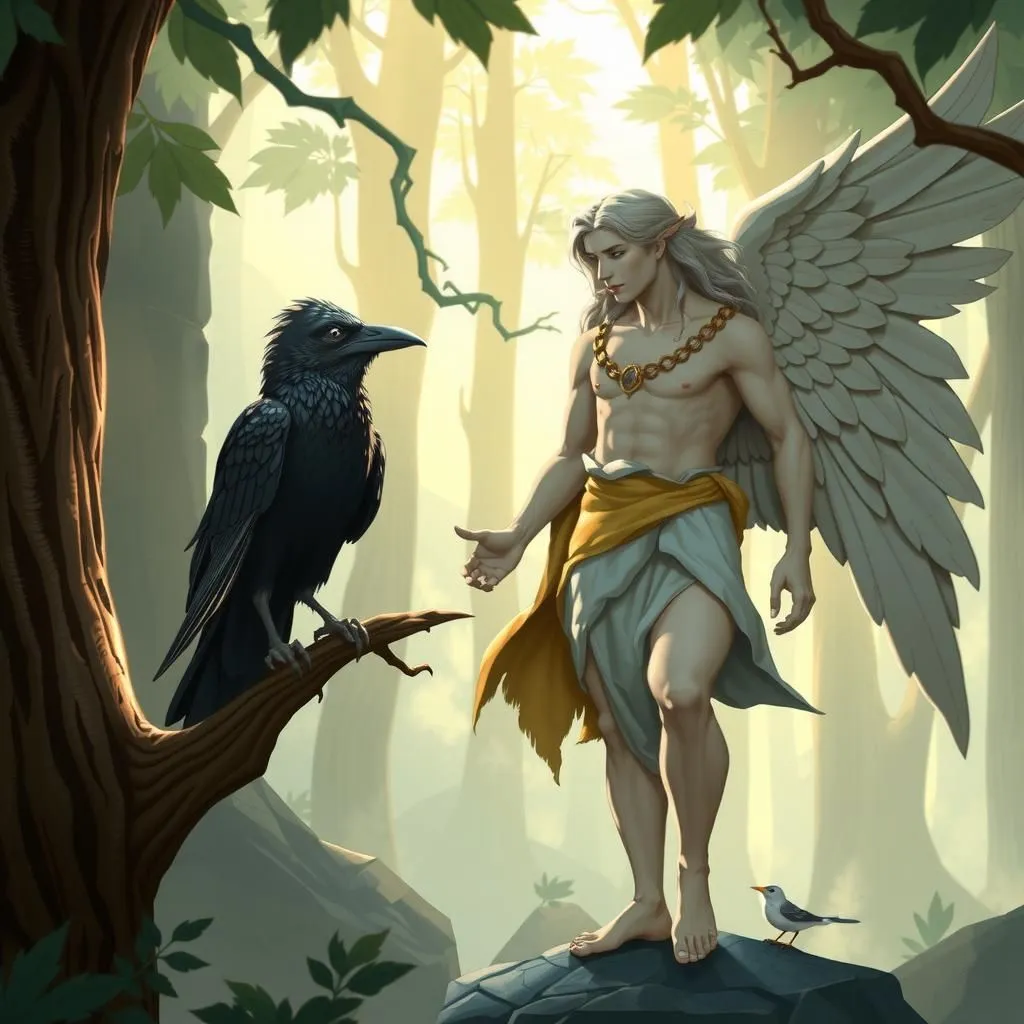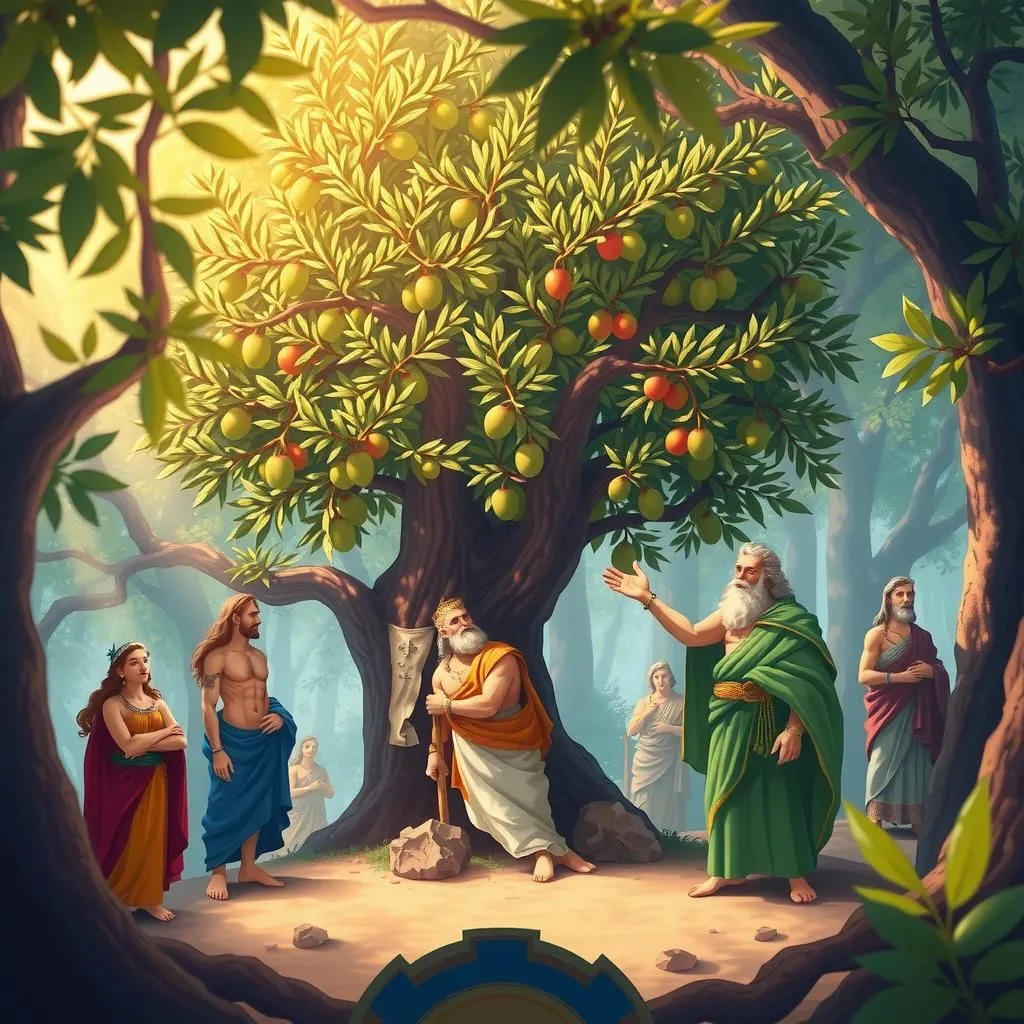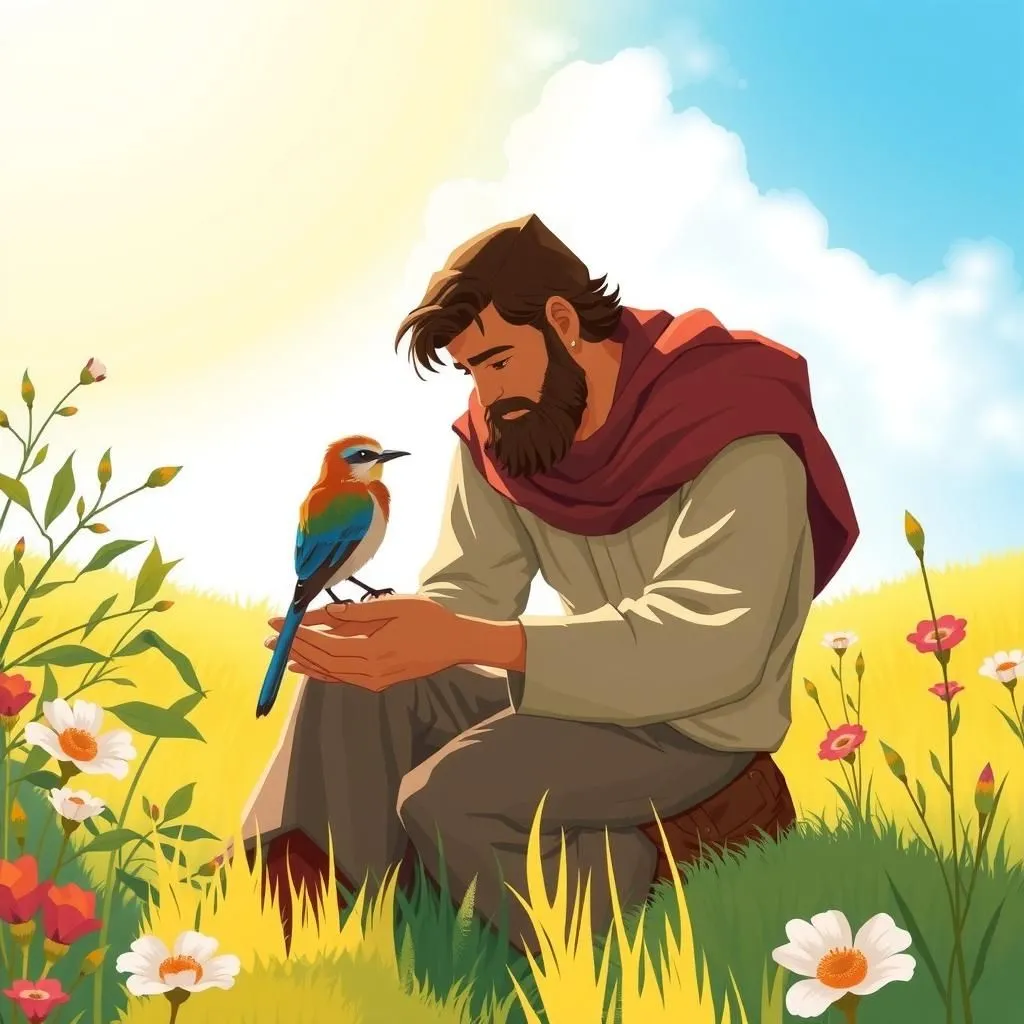
The Crow and Mercury
In the fable "The Crow and Mercury," a crow, ensnared and desperate, prays to Apollo for rescue, promising to offer frankincense at his shrine, but forgets his vow once freed. Caught again, he makes a similar promise to Mercury, who scolds him for betraying Apollo and questioning his loyalty. This short story with moral illustrates the consequences of failing to honor one's commitments, a theme found in many well-known moral stories.


